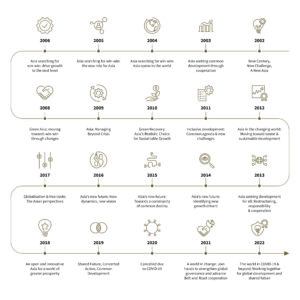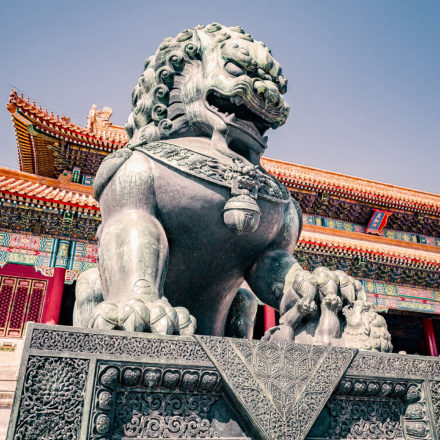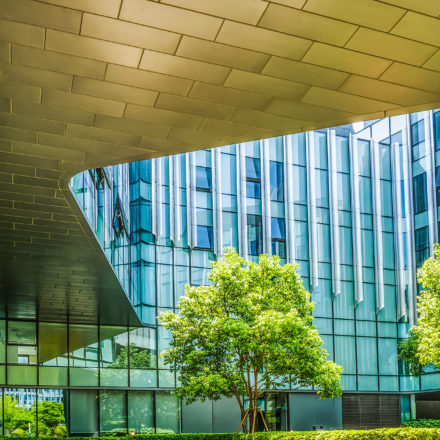Industry and political leaders from 28 countries will attend the 2023 Boao Forum, from Australia to Vietnam. Front of mind is cooperating in an uncertain world. Clean energy and data security are among key focus areas.
Asia will hold its 22nd annual Boao Forum for Asia (or BFA) from 28-31 March. Industry, political, and economic leaders from countries around the world will gather for the annual forum to discuss and promote greater economic integration in Asia.
The forum is held in its namesake town, Boao, located in Hainan Province on the east coast of the People’s Republic of China. Sitting 19.51° North, 110.30° East, “Boao” is said to mean “abundant fish and fat fish”, alluding to its long history as a fishing village. It’s an apt reference, as leaders prepare to descend on the scenic nature-rich venue to discuss sustainable development (among other pressing issues).
With increasing global discussion of investment and trade relationships with Asia, this year’s Forum is more important than ever. Here’s why.
History of the Boao Forum
Modelled off the World Economic Forum held in the Swiss town of Davos each year, the Boao Forum was established to address the unique needs and perspectives of Asian countries on global economic issues. Australia’s former Prime Minister Bob Hawke was one of three world leaders to propose the Forum’s establishment. In 1998, Hawke stood alongside the former Filipino President Difel V Ramos and former Japanese Prime Minister Morihiro Hosokawa, proposing the idea of an ‘Asian Forum’. Meeting in Beijing the following year, the then Vice President of China, Hu Jintao, signalled the country’s support of the forum. Two years later in 2000, the Boao Forum was officially born.
Since the forum’s first conference in 2001, all 25 original member states have continued to meet annually to engage in fruitful discussion surrounding the most pressing global economic issues and another three have since joined. The forum will meet for its 22nd annual conference, where leaders hope to generate positive energy for the development of Asia and the world. See below for a full list of member countries.
“BFA shall provide a high-level venue for dialogue between leaders from government, private enterprise, academia and other juridical associations to discuss, exchange and develop ideas in the scope of economic, social, environmental and related issues.” BFA Charter
Climate change and technology rise to prominence: What happened in 2022?
The 2022 Boao Forum addressed a range of pressing global issues. It explored the challenges of life three years into a global pandemic, when many communities were still suffering and global recovery remained uncertain. Pertinent discussion points, themes and outcomes included:
- The urgent need to address catastrophic climate change and to shift towards a greener economy.
- Technology and innovation, with the panel considering AI, big data and cloud technologies, among other developments.
- The Global Development Initiative proposed by China to promote a focus on “people-centred development” by helping the post-Covid recovery of developing nations. This aims to support sustainable development goals and has attracted support from more than 100 countries (including 68 that are among a ‘Group of Friends of the GDI’).
Certainty in an uncertain world: What is expected in 2023?
There are some clues from the conference theme and agenda. This year’s theme is An Uncertain World: Solidarity and Cooperation for Development amid Challenges.
Discussion topics on the agenda include:
- Global green energy and green hydrogen supply chains
- The future of clean energy
- Extreme weather events and climate change
- Data ownership and security
- Next generation internet: from ‘metaverse’ to ‘immersive convergence’
- New landscape of industrial and supply chain
- The Belt and Road: sharing opportunities of development
- Asia Pacific regional cooperation: new opportunities and challenges.
Several pre-eminent leaders are set to attend from a range of industries and sectors, including:
- Fortescue Metals executive chairman Andrew Forrest
- Treasury Wine Estates chief executive Tim Ford
- Australia China Business Council president (and our own KWM international director) David Olsson.
The Boao Forum comes shortly after the 50th anniversary of bilateral relations between Australia and China, prompting reflections on the importance of the relationship.
For the detail-hungry: The member countries and previous Boao themes
There were 26 member countries at inception: Australia, the People’s Republic of Bangladesh, Brunei Darussalam, Kingdom of Cambodia, the People’s Republic of China, the Republic of India, the Republic of Indonesia, the Islamic Republic of Iran, Japan, the Republic of Kazakhstan, the Kyrgyz Republic, the Lao People’s Democratic Republic, Malaysia, Mongolia, the Union of Myanmar, the Kingdom of Nepal, the Islamic Republic of Pakistan, the Republic of the Philippines, the Republic of Korea, the Republic of Singapore, the Democratic Socialist Republic of Sri Lanka, the Republic of Tajikistan, the Kingdom of Thailand, Turkmenistan, the Republic of Uzbekistan, and the Socialist Republic of Vietnam.
Another three – Israel, New Zealand and the Maldives – joined in 2006 and 2016.
To glance at the themes over the past two decades is to journey through shifts in the global economy and Asia’s evolving place; from a focus on a ‘new Century’ in 2002, to the familiar-sounding ‘Green Recovery’ in 2010 and a focus on a ‘Covid-19 world’ in 2022.

We are watching developments as the forum unfolds from March 28, running until March 31. To stay updated, subscribe to Pulse below and to our climate insights here.
To read about the opportunities from collaboration between Australian and China towards a net zero economy, see our report on The Climate Challenge.
Want to know more about Hainan, the stunning setting for the forum? Read our side bar on ‘Tourism, Trade and Parties in Hainan’ this piece about China’s carbon trading system.
Thank you to Anita Zorzetto for research assistance.








